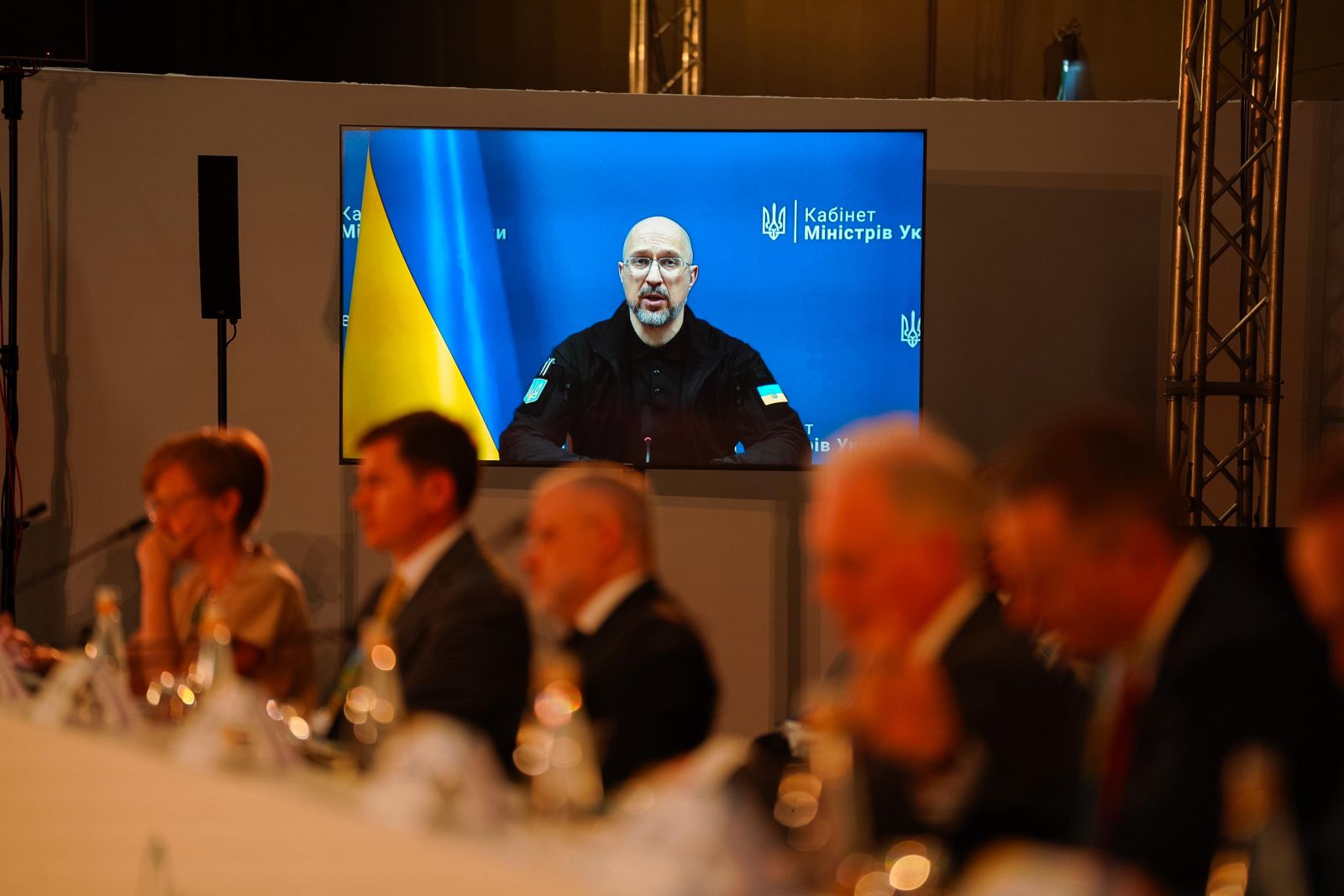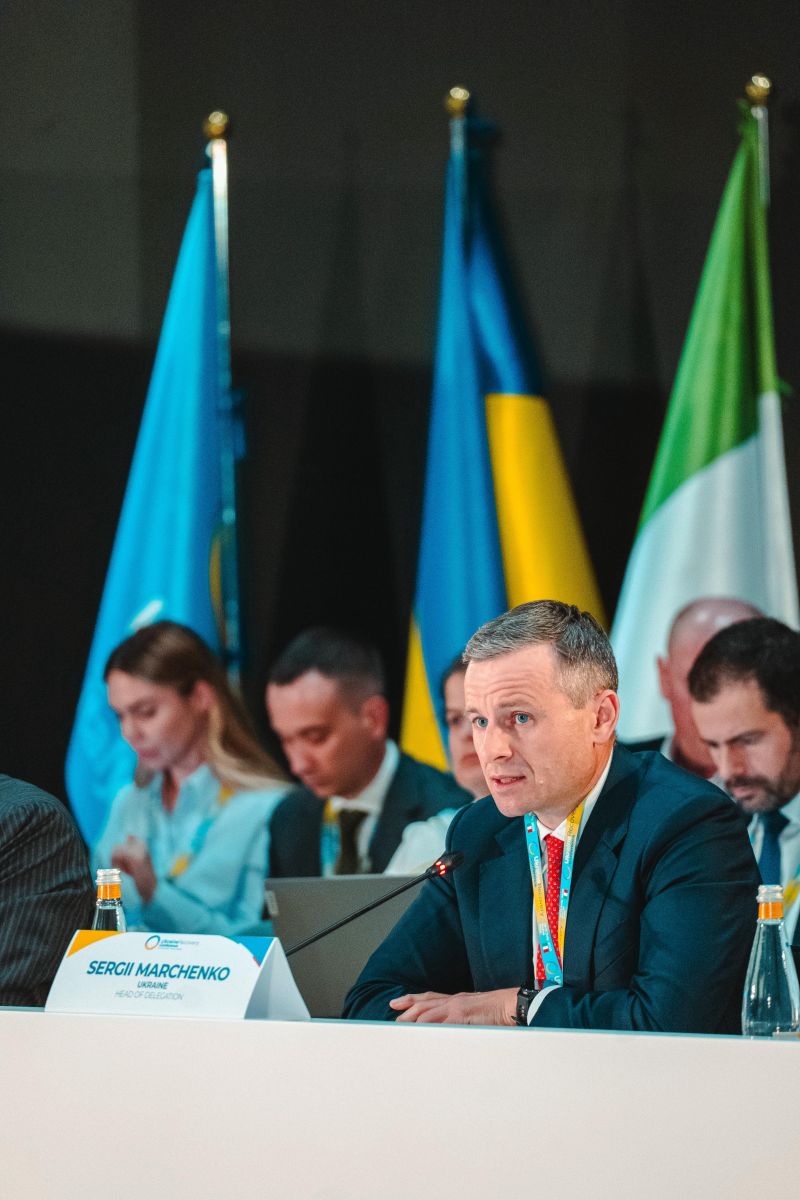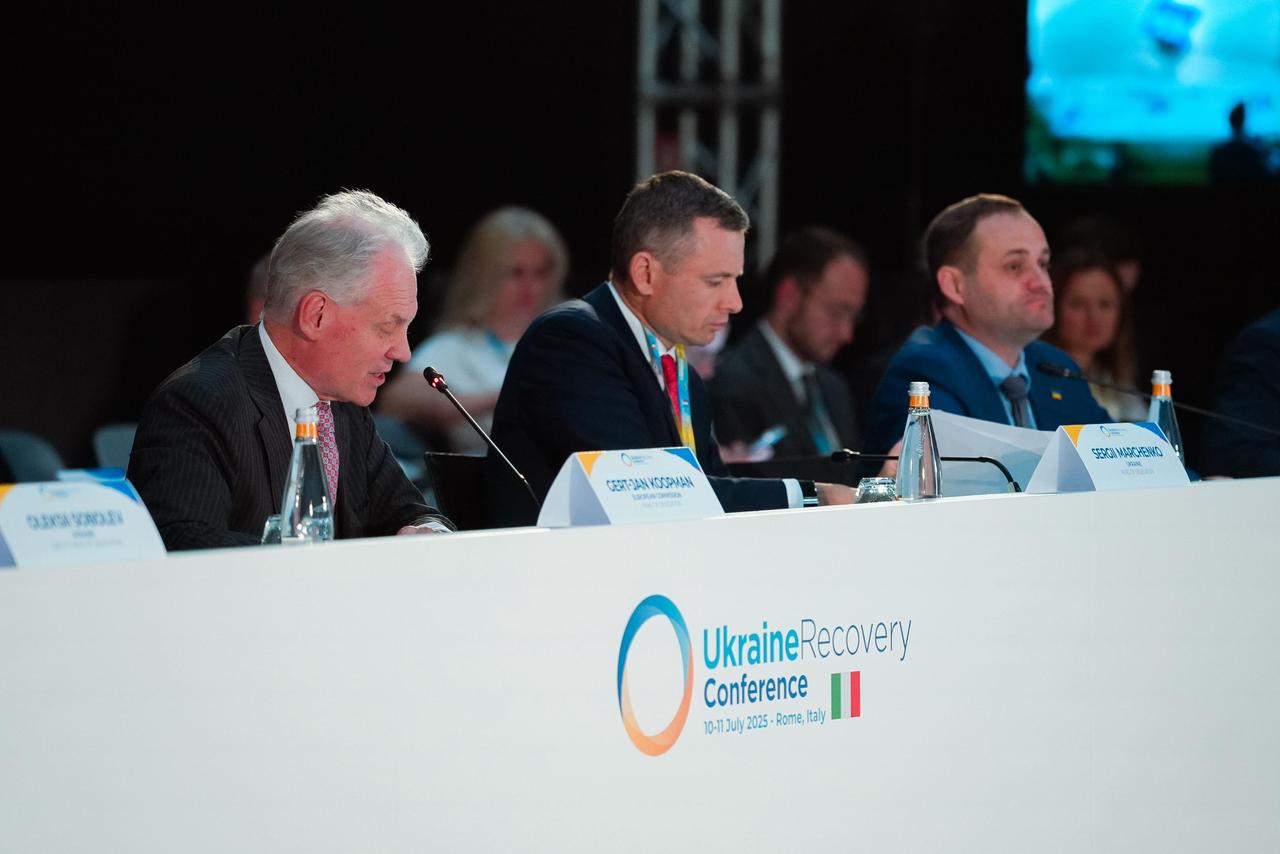On July 9 in Rome, Italy, the fourteenth meeting of the Steering Committee of the Ukrainian Donor Platform took place.
From Ukraine, the event was attended by Prime Minister Denys Shmyhal (online), co-chair of the Platform; Minister of Finance Serhiy Marchenko; Vice Prime Minister for Recovery – Minister for Communities and Territories Development Oleksiy Kuleba; Minister of Energy Herman Halushchenko; and First Deputy Minister of Economy Oleksiy Sobolev.
Among the international partners were Gert-Jan Koopman, Director-General for Neighborhood and Enlargement Negotiations at the European Commission; Christopher Bergaust, Acting Coordinator for U.S. Assistance to Europe, Eurasia, and Central Asia at the U.S. State Department; Davide La Cecilia, Special Envoy of the Minister of Foreign Affairs and International Cooperation of Italy for Ukraine’s Reconstruction and Resilience; as well as representatives from G7 countries, the European Commission, and international financial organizations.
Serhiy Marchenko thanked colleagues for their active cooperation within the Platform and the Italian side for hosting the meeting live in Rome on the sidelines of the Ukraine Recovery Conference.
The Platform remains a key mechanism for coordinating international support for Ukraine’s budgetary needs and reconstruction efforts. It currently unites 23 countries and 7 international financial organizations.
During the meeting, the Minister of Finance outlined the state of the financial system, key needs for 2026, and medium-term prospects:
“Thanks to joint efforts by the Government of Ukraine and international partners, full coverage of external financing needs for 2025 – amounting to $39.3 billion – is expected. As of the first half of the year, over $22 billion has already been received. In the context of both ongoing full-scale war and the potential scenario of active hostilities ending, Ukraine requires regular and predictable external support to maintain financial stability, which has been achieved together with partners since 2022. This also creates the foundation for successful reconstruction of the country.”

According to the IMF’s Extended Fund Facility (EFF) programme, if active hostilities end, the required international support will amount to $22 billion. At the same time, Ukraine will need additional resources to strengthen its defense capabilities. If the full-scale war continues in 2026, budgetary needs will remain at least at the 2025 level. Security assistance will not only help effectively deter the aggressor within Ukraine but will also serve as reliable protection for Europe against threats from Russia.
The Minister of Finance called on partners to accelerate work on the confiscation of frozen Russian assets. This should become not only an act of justice but also a significant financial resource for reconstruction.
At the same time, he noted positive dynamics in domestic revenues to the state budget. In the first half of 2025, they increased by 17% compared to the same period in 2024.
In 2025, 64% of all expenditures from the general fund of the state budget were allocated to the defense sector. The Government has also submitted a bill to Parliament for additional army funding of $10 billion (UAH 412.4 billion) through budget overperformance and domestic borrowing. These funds are intended to cover additional needs of the Armed Forces for weapons, ammunition, and equipment.
Special attention was paid to the implementation of reforms in Ukraine. The government continues their realization and fulfills obligations within cooperation with international partners. In particular, Ukraine recently successfully passed the record eighth review of the IMF’s EFF programme. Progress was also achieved in meeting conditions to attract funds within the EU’s Ukraine Facility.

Among key achievements is the implementation of the Public Investment Management (PIM) reform, aimed at increasing the efficiency and transparency of state funds used for reconstruction. The reform introduces new approaches to selecting projects for state investment.
Serhiy Marchenko emphasized that currently capital expenditures under the PIM reform are focused primarily on urgent needs – housing, energy, and security infrastructure. At the same time, it is important to expand investments aimed at developing the economy and social sphere, which will shape the country’s future.
Participants of the Platform confirmed their readiness to continue supporting Ukraine to maintain financial stability, recovery, and sustainable development.


















